Charity shops have generally been a happy hunting ground for me over the years. At least half of my book and record collection, and a fair few wardrobe items, can trace their lineage to Marie Curies and Faras across the land.
In this post-recession retail landscape they've proliferated more than ever, often occupying empty high street spaces no sooner have they been vacated, attracted as ever by heavily discounted business rates.
Whenever I’m on a weekend away or assignment in another part of the country I’ll always duck into one if there’s time to kill, in pursuit of another random find, be it a pair of vintage flares or an old Beano annual.
Only charity shops can deliver that Proustian high of another nostalgic find or a rare vinyl that’s slipped through the shop’s pre-filter process, followed by the smiling elderly volunteer till experience, which can often be a protracted one. I even progressed to first-name terms at one hometown outlet, where I was sometimes let into their stockroom when a big load had arrived. These were true glory days, the favour of which I returned with volunteer shifts when they were short-staffed.
Those better times, however, become more distant with each passing year as over the last decade I’ve perceived a significant downturn in the charity shop experience. (And it’s nothing to do with Mary Portas’ short-lived attempts to improve their fortunes a few years ago).
Then on the flipside you've got the greater-spotted charity shop hounds often seen stalking the aisles armed with their smartphones, openly eBay-searching anything potentially worth more than a few quid to sell on (something I’ve never understood, as surely the time and effort spent doing so, then listing the items and paying eBay/PayPal fees + packing and postage negates any meagre profit in the enterprise?).
Anyway, this all in turn leads to the next insidious charity shop phenomenon of recent times, that of the ridiculous mark-up prices given to low-end items, encapsulated in this recent photo I snapped at a British Heart Foundation store in Stowmarket, Suffolk:
Other wishful thinking examples include used DVDs for more than what they’d cost brand new on Amazon; budget book series like Penguin Popular Classics whose original retail price often doubles upon hitting Oxfam's shelves; and some antique-range collectables priced way off the scale of what you’d pay at a specialist.
Don’t get me wrong – I entirely agree and assent that a charity shop’s chief objective is to make as much money as possible from donations, while also finding new homes for truckloads of unwanted items that would otherwise be binned.
Surely then though these goals will be better hit by attracting more customers with reasonable and realistic prices rather than alienate them with illogical ones? If the key business principle of maximum profit is to be fulfilled then shouldn't it emulate a commercial retail enterprise in that respect – if a chemist or greengrocer randomly hiked up all its prices it would very quickly go out of business.
And from a donator’s POV there’s a secondary principle of what’s the point in bequeathing your boxful of CDs & DVDs, as I do every time I move house, if they’re just going to vegetate on a shelf for months before eventually being dumped because they haven’t been priced sensibly? I once returned weeks later to a shop I’d donated to, to find that some of the CDs - old indie compilations off the fronts of magazines - had been arbitrarily priced at £1.99 & £2.99 with no forethought or comprehension that in the digital age they won't shift for that.
Granted, many shops do do this, and more power to them, but as long as the mavericks stubbornly stick to their dated guns in the same way do doomed restaurateurs despite Ramsay's efforts, then more customers just won’t be arsed any more.
But for those who for financial disadvantages rely on charity shops for things like clothes or baby toys more out of necessity, that’s where stores will do well to knock lingering mistakes on the head for the common good, with the charities themselves the ultimate beneficiaries.
I'm just glad I was around before eBay got its yellow mitts on everything – what's left behind ain't pretty.
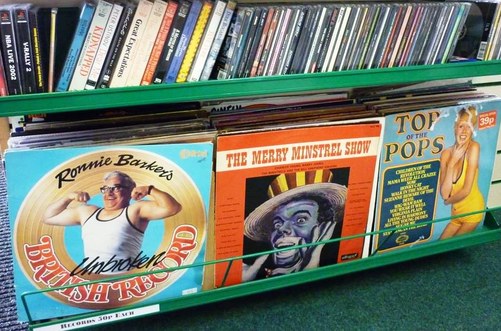

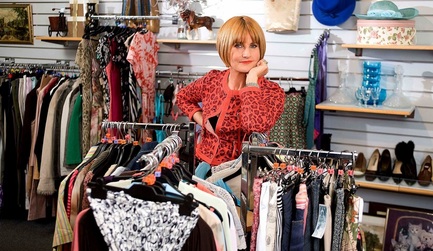

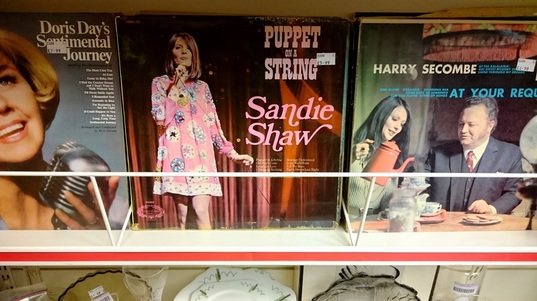
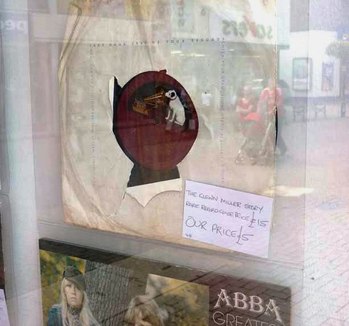

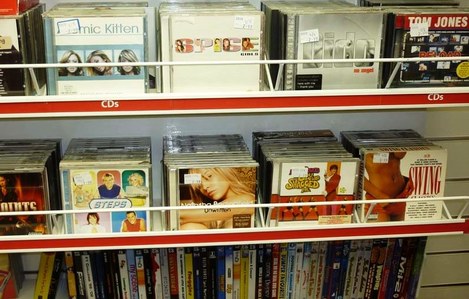

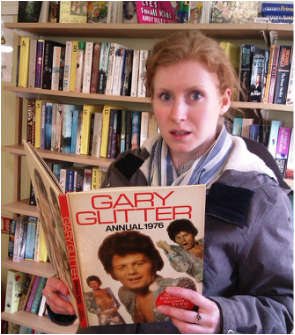
 RSS Feed
RSS Feed